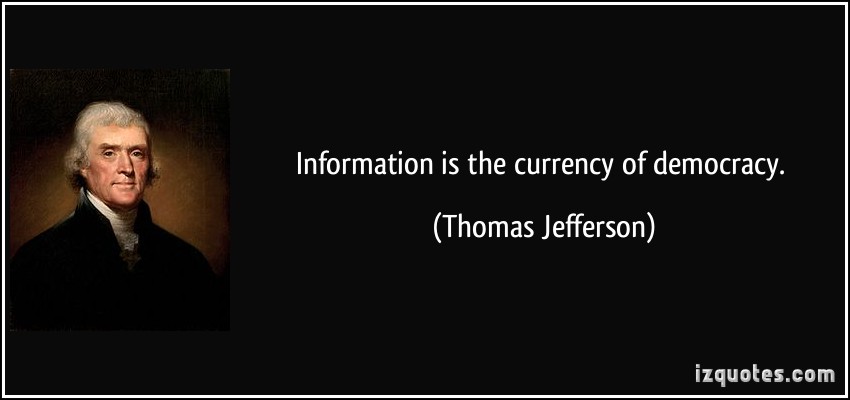Seventy years after the UN General Assembly adopted the Universal Declaration of Human Rights in Paris, the Paris-based international NGO Reporters Without Borders (RSF) announces the formation of a panel of 25 prominent figures with the aim of drafting an International Declaration on Information and Democracy.
Co-chaired by Nobel peace laureate Shirin Ebadi and RSF secretary-general Christophe Deloire, the “Information and Democracy Commission” includes Nobel economics laureates Joseph Stiglitz and Amartya Sen, Peruvian novelist and Nobel literature laureate Mario Vargas Llosa and Nigerian human rights lawyer Hauwa Ibrahim, a recipient of the European Parliament’s Sakharov Prize.
This independent panel is being created at a time when “the crisis of trust in democracies and the growing influence of despotic regimes pose a major threat to freedoms, civil harmony and peace,” the co-chairs say in the letter defining its mission. Political control of information in a globalized public space, the influence of private interests, the growing power of corporate actors who escape democratic control and the undermining of quality journalism are the leading causes.
“The Declaration’s function will be to state principles, define objectives for decision-makers and propose forms of governance,” the mission statement says. It must “constitute a point of reference that will mobilize all those who are committed to defending a free and pluralistic public space, which is essential for democracy.”
Panel with 25 members from 18 countries
As well as the above-mentioned members and co-chairs, the Commission includes Abdou Diouf, a former president of Senegal and former secretary-general of the International Organization of the Francophonie; Navi Pillay, a South African lawyer and former UN High Commissioner for Human Rights; Francis Fukuyama, a US political scientist, essayist and Stanford University professor; Mireille Delmas Marty, a French jurist and Collège de France honorary professor; and Teng Biao, a Chinese human rights lawyer.
It includes these leading journalists: Can Dündar (Turkey), Maria Ressa (Philippines), Ulrik Haagerup (Denmark), Ann Marie Lipinski and Marina Walker (United States), Aidan White (United Kingdom) and Mikhail Zygar (Russia) and Adam Michnik (Poland), as well as the following technology specialists: Harvard professor Yochai Benkler; Emily Bell, the director of the University of Columbia’s Tow Center; Antoine Petit, the head of France’s National Centre for Scientific Research (CNRS); Eli Pariser, the founder of the website Upworthy and co-founder of Avaaz; the Italian researcher Primavera de Filippi; and Nighat Dad, the founder of Pakistan’s Digital Rights Foundation.
Towards an International Pledge on Information and Democracy
This initiative’s ultimate goal is an international commitment by governments, private-sector companies and civil society representatives. To this end, RSF expects a political process to be launched at the initiative of the leaders of several democratic countries on the basis of the Declaration, and that this will lead to an “International Pledge on Information and Democracy.” Letters have already been sent to leaders in all continents of the world, and RSF hopes that they will commit as early as mid-November, when dozens of heads of state and government meet in Paris for the commemoration of the 100th anniversary of the end of the First World War (11 November), for the Paris Peace Forum (11-13 November) and the Internet Governance Forum 12-14 November).
The Commission is meeting for the first time the 11th and 12nd September in Paris and has set itself the goal of completing its work within two months. RSF, which is acting as its general secretariat, initiated a discussion several months ago that is intended to contribute to the Commission’s own debates. International consultations with a wide range of stakeholders have also been launched. Any persons or entities that would like to participate can send their contributions in English or French to
informationdemocracy@rsf.RSF initiatives
Registered in France as a public interest entity, RSF is an independent non-profit that has consultative status with the UN, UNESCO, the Council of Europe, the International Organization of the Francophonie, and the African Commission on Human and Peoples’ Rights. Headquartered in Paris, it has bureaux, sections or representatives in 17 cities (Berlin, Brussels, Geneva, Helsinki, Istanbul, Karachi, Kiev, London, Madrid, Mexico, Rio de Janeiro, San Francisco, Stockholm, Taipei, Tunis, Vienna and Washington), correspondents in 130 countries and 15 local partner organizations.
RSF’s vision is for “all human beings to have access to the news and information they need in order to be aware of and understand the challenges posed by the world and the environment.” Its mandate is to promote “journalistic freedom, pluralism and independence” and defend“those who embody these ideals.” Its work is “inspired by article 19 of the 1948 Universal Declaration of Human Rights, the International Covenant on Civil and Political Rights, and the leading Declarations and charters about journalistic ethics.”
Although supported by RSF and created at its initiative, the Information and Democracy Commission is independent of RSF and is not bound by its mandate.
RSF launched a Journalism Trust Initiative (JTI) in April with the aim of promoting journalistic methods, editorial independence, media transparency, and respect for journalistic ethics by giving concrete advantages (especially technological and economic ones) to news media that adhere to standards defined collaboratively in a process of self-regulation. Around 100 media organizations – including publishers, media unions, press freedom NGOs and other international organizations – are participating in the JTI. Its partners include Agence France Presse, the Global Editors Network and the European Broadcasting Union.
The JTI is focused on news media of all kinds and sizes and is designed to defend journalistic values in the face of changing economic realities. The Information and Democracy Commissionhas a complementary aim, which is to define the intellectual and legal bases of the public space in the era of the Internet and globalized news and information.
